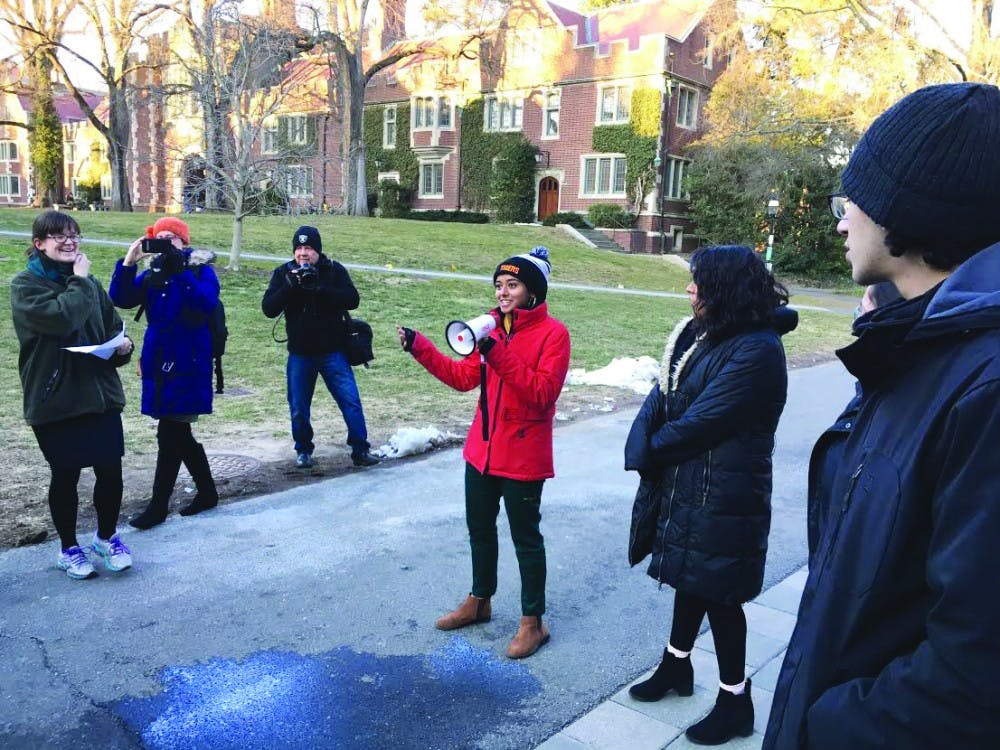On Thursday, Feb. 16, the Muslim Advocates for Social Justice and Individual Dignity and the DREAM Team, two student groups on campus, came together to host a Solidarity Rally and Teach-In.
“MASJID and the DREAM Team are hosting a Rally and Teach-In in part response to the recent events, the immigration ban, and the growing crack-down on undocumented individuals living in the US and refugees who are trying to come into the country,” said Nabil Shaikh ’17, a student organizer with MASJID.
According to Shaikh, MASJID is a Muslim political activist student group on campus that seeks to provide a space for Muslim students and community members to come together and discuss issues of political importance.
According to Courtney Perales ’17, another student organizer of the event, the Princeton DREAM Team is an immigrant rights advocacy group that is active in organizing activism events both on campus and beyond.
“Both MASJID and DREAM Team have new boards that are trying to work more in collaboration around issues of migration, immigration, and the refugee crisis,” added Shaikh in discussing how the event came together.
The MASJID-DREAM Team collaboration involved two distinct components: a rally and a teach-in. The rally began on the Frist North Lawn, where several students shared their perspectives on immigrant rights to an audience that had gathered.
“A rally is about interrupting the flow, the normal use of a campus space, to express a political message and to amplify our political message, the message here being one of inclusion, one of welcoming of refugees and immigrants,” said Shaikh.
Following the rally, a teach-in was hosted in Frist 302.
“We shifted into [Frist] 302 to talk about the specific initiatives we [MASJID and Dream Team] had,” said Perales. “At the end, we asked for open space so people could come and approach us about anything we had said.”
Perales hoped a takeaway from the event was wider attention given to intersectionality in regards to activism. “I think it’s important to take away things like solidarity and intersectionality [from] different activist efforts. We need everyone to get involved and be present and supportive for everyone in our communities and the most vulnerable in our communities. We really hope this reaffirms an intersectional approach to student activism.”
Shaikh also hoped the event would inform not only the Princeton community at large, but activists in particular.
“It’s a necessity for activists to be aware of the details of the issues with which they are allied,” said Shaikh.









